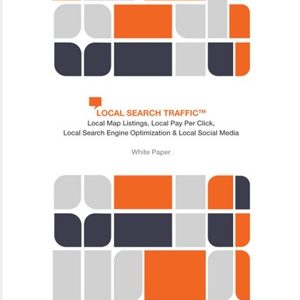
How Important is Schema Markup for Local SEO?
Local SEO experts and webmasters often recognize the benefits of optimizing SEO elements on landing pages, such as title tags and quality content. But what can schema markup achieve for a local business website? Quite a lot.
When considering organic search, having a comprehensive schema on your website offers significant advantages. Google has repeatedly emphasized that schema assists search crawlers in understanding a landing page and presenting relevant information in search engine results.
This article provides recommendations to help amplify your local SEO efforts using schema.
Understanding Schema, Structured Data, and Rich Results
The terms "structured data" and "schema" are often used interchangeably in SEO circles, but understanding their differences is helpful before diving into recommendations.
Structured Data: Google defines structured data as a standardized format for providing information about a page and classifying content. This helps search engines accurately interpret a webpage to display relevant snippets in search results.
Schema: Officially introduced via schema.org, schema is a form of structured data created through a collaborative effort by major search engines in 2011. This markup allows a page to qualify for rich results.
Rich Results: Known previously as rich snippets, rich results provide additional information in search results beyond the usual blue title tag and description (e.g., breadcrumbs, review stars, and sitelinks).
Google offers two tools to audit structured data: the Schema Markup Validator and the Rich Results Test, providing examples of local businesses benefiting from rich results.
Is Structured Data a Local Ranking Signal?
Debate has lingered on whether structured data is a direct ranking signal. Google’s John Mueller has stated that structured data is not a direct ranking factor. However, it indirectly boosts visibility through enhanced comprehension by search engine crawlers and increased click-through rates (CTR) with rich results.
Recommended Structured Data for Local Business Websites
Local sites often have basic structured data, but more detailed implementations are beneficial. Here are steps for effective application:
-
Select the Appropriate Schema.org Category: Categories like schema.org/IceCreamShop or schema.org/HardwareStore help Google understand a website’s relevance and field.
-
What if No Relevant Category Exists?: Use schema.org/LocalBusiness as default, or propose new categories on schema.org’s GitHub forum if technically inclined.
-
Implement Required Schema Properties: These include URL, name, opening hours, telephone, image, logo, address, geo coordinates, area served, and main page content.
-
Highly Recommended Properties: Include review aggregation, FAQ schema, alternative names, social media links, breadcrumb schema, and department mapping for detailed structure.
- Advanced Schemas: Consider sitelinks search boxes and additional types for broader topical relevance.
Ensuring Proper Validation of Structured Data
Validation is crucial for qualifying for rich results. Google specifically requires error-free structured data for rich result eligibility. Utilize tools like the Schema Markup Validator and the Rich Results Test, along with Google Search Console for sitewide monitoring.
Schema Markup Validator: Helps identify and correct errors and warnings in structured data.
Rich Results Test: Displays potential rich results and previews them in SERPs.
Google Search Console: Provides alerts regarding structured data issues and enhancement reports.
Monitoring Rich Results and Avoiding Pitfalls
Certain third-party SEO tools can monitor the presence of rich results across Google SERPs. Avoid manipulation or ‘stuffing’ of structured data, as it can result in penalties. Adherence to Google’s structured data guidelines is critical.
Conclusion
Applying relevant structured data to your local business website poses no risks and significant rewards. While many SEO strategies require visible changes and effort, structured data updates are seamless and can greatly enhance visibility through rich results. To further optimize a local business website, consult schema.org and engage with a webmaster to integrate structured data effectively.



